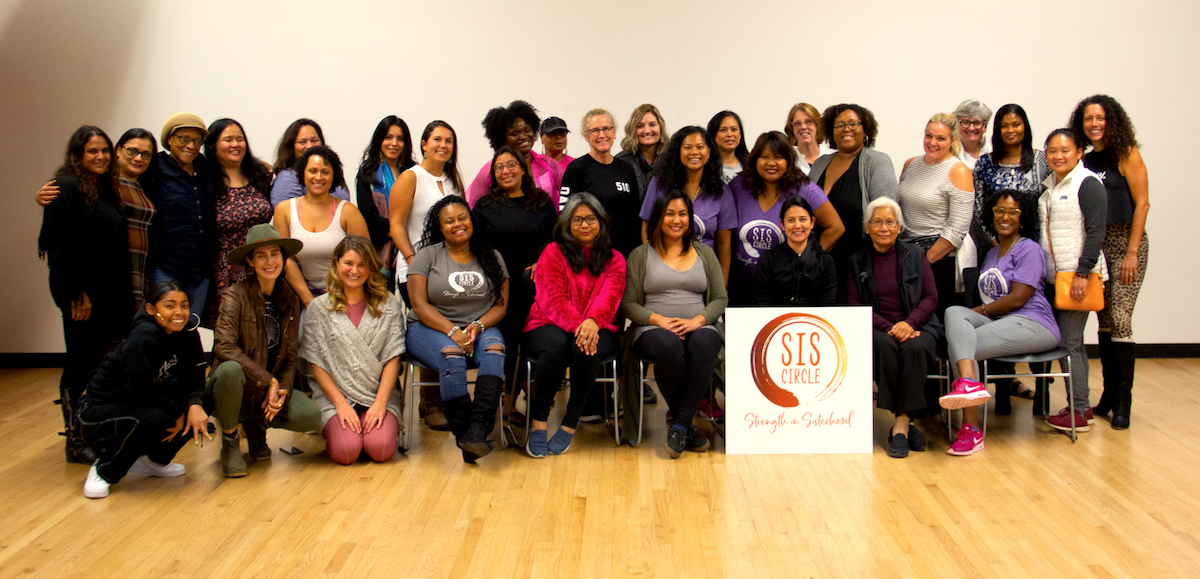
Last Friday, we interviewed three amazing women leaders from DocuSign, Denali Therapeutics, and The Teaching Well. This is the first of four blog posts that captures their insightful responses to our questions. For more information about our panelists, read their bios here.
Your positions in leadership are inspiring to other women. What would you say is the number one skill an aspiring female leader should cultivate as she grows in her career?

Question submitted by founding SIS Circle member, Julie Ziegler.
“Figure out what you want to do, ask for help when you need it, and create a plan.“
– Lena Waters, VP Integrated Marketing at DocuSign

Lena’s response (slightly edited transcription from interview):
Make sure in a professional environment to ask for what you want. It seems like a small thing but sometimes women find themselves in a position where they are so busy taking care of others we forget to take care of ourselves. If I am trying to make my way from A to B in a career in a company I should have a plan. There’s no problem making a plan when I am at work. I manage accounts, projects, and teams, and I would never do anything without having a plan.. When I started to think of it that way, it got simpler and it didn’t mean that my plan was really good, and it didn’t mean that it worked out, but it allowed me to stand out of myself and when I needed help or if there was something I wanted to do to advance the plan, then I could ask for it. It gave me the backbone of what I wanted to do and how I was going to do it and allowed me to disassociate myself from feeling bad or guilty.
Figure out what you want to do, which is the hardest part, ask for help when you need it, and create a plan. Think of everything you do as a project. We all do that from day-to-day. That’s been the one principle that I’ve kept with me from when I was very young and I still do it today.
“Professional resilience.”
– Dr. Meredith Calvert, PhD, Principal Scientist at Denali Therapeutics

Dr. Calvert’s response (slightly edited transcription from interview):
Professional resilience; I know that’s multi-faceted but also critical to success in any field. Professional resilience is the ability to work very hard. It’s to put absolutely everything into it, to believe in it, and to work really hard for it. That’s the number one ingredient for success.
At the same time, professional resilience is the ability to take criticism and not let it break you down. To be able to understand and hear constructive criticism but at the same time with resilience, you have to believe in your own ideas too. You have to be able to take criticism, but also recognize when it doesn’t resonate with you and to decide that you’re going to stick with your ideas anyway- and be able to distinguish the two.
“Believe in our own genius.”
– Sonya Mehta, Director of Partnerships at The Teaching Well

Sonya’s response (slightly edited transcription from interview):
I recently read a Harvard Business Review article that talked about a study they did on leadership competencies between men and women. It compared men’s and women’s performance, and also how women rated themselves with how men rated themselves. Out of 19 competencies, women outperformed men in 17 of them, and yet consistently rated themselves lower in all areas. That’s consistent with other findings on how men often read job descriptions and meet 30% of the criteria and apply anyway, using their other talents and charisma to advance in the process. Women do just the opposite. (They) read job descriptions where they meet 90% of the criteria and choose not to apply. As women, we often get in our own way because of societal conditioning that has taught us not to take a chance on ourselves.
So, it’s clear to me that women don’t really need to develop any talent other than believing in our own genius. Everything else is already there. When we look at disparities, so much is culturally transferred from one generation to the next. I think our generation has the ability to move out of that and invest in our own abilities as women.

